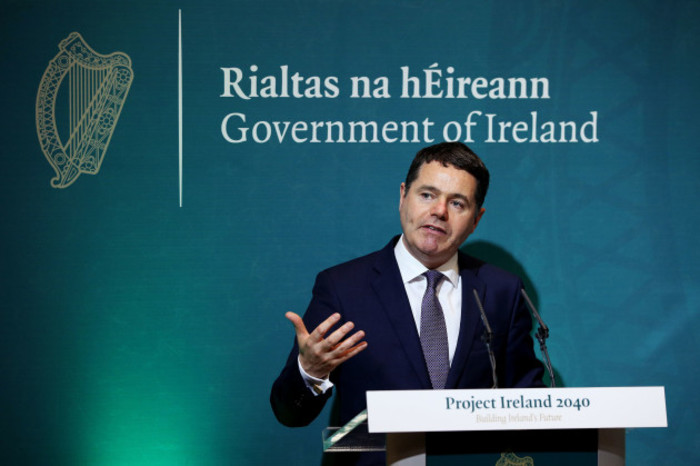Want to plug the skills and gender gaps? Then double childcare subsidies
There’s never been a better time for the State to support women in the workforce.
AS THE ECONOMY approaches full employment, there has never been a better time for the government to support women in the workplace.
Many women leave the workforce for a number of years when they have children. That’s so they can spend time with their families – and because they can’t afford the penal cost of childcare.
Full-time creche fees in Dublin can surpass €1,000 a month – per child. It is really only once the child reaches school age that the burden of childcare costs is somewhat diminished.
The gap between the labour force participation rate of men and women is about six percentage points at age 20 to 25, but widens to 17 percentage points for those aged 35 to 44.
This means that about 135,000 women of child-rearing age disappear from the labour force to work in the home.
Research from the European Commission shows that Ireland has the second-highest participation tax rate in Europe for potential female entrants to the workforce when childcare costs are taken into account.
What does this mean? Well, let’s take the participation tax rate in Ireland for a two-child family, which is estimated to be 94%.
This means that a woman entering the labour force will get to keep just 6% of what she earns after taxes and childcare costs are taken into account – that isn’t much of an incentive!

Affordable Childcare
Last year, the government began to alleviate the burden of childcare for all children under the age of three through the Affordable Childcare Scheme.
The programme has a means-tested component that effectively rationalises a number of pre-existing programmes, but, crucially, added a universal component that provides a new subsidy against the cost of creche fees for all families.
This universal component, which amounts to about €80 a month, is provided no matter how much either person in a two-person family is paid.
In terms of making a choice about going back to paid employment, the universal component is critical. The means tested element of the Affordable Childcare Scheme is based on an assessment of both people.
So, many women returning to work find that their partner’s salary disqualifies them from availing of much of the relief provided by the Affordable Childcare Scheme.
To put it another way, a couple where each earn the average wage – as measured by Department of Finance – of €38,000 would not qualify for any payment under the means tested component of the scheme. They do, however, qualify for the universal payment of €80 a month.
 Finance Minister Paschal Donohoe
Finance Minister Paschal Donohoe
Dublin Chamber has called for the maximum universal subsidy paid under the Affordable Childcare Scheme to be doubled in Budget 2019, from €80 to €160 per month for young children in full-time care.
We’re also looking for further increases to follow in the coming years. The cost of doubling the subsidy is less than €20 million, based on existing take-up levels.
Staff shortages
Businesses in Dublin are crying out for staff. So, childcare affordability doesn’t just affect quality of life and family well-being; it is a hard business issue.
According to research by Dublin Chamber, three-quarters of firms in the greater Dublin area report that the cost of childcare is having a negative impact on their business. Meanwhile, almost one in five of our members have specifically identified easing female labour market participation as a solution to helping them access the skills they require.
The Irish labour market is tightening quickly. Almost two-thirds of businesses in the capital are now struggling to find staff with the right skills. This problem will only worsen as the economy grows.
While inward migration plays a valuable role, more population growth carries its own challenges in terms of managing infrastructure and the housing stock.
However, there is considerable untapped potential in Ireland due to our low level of female labour force participation.
Aebhric Mc Gibney is director of public and international affairs at Dublin Chamber.






